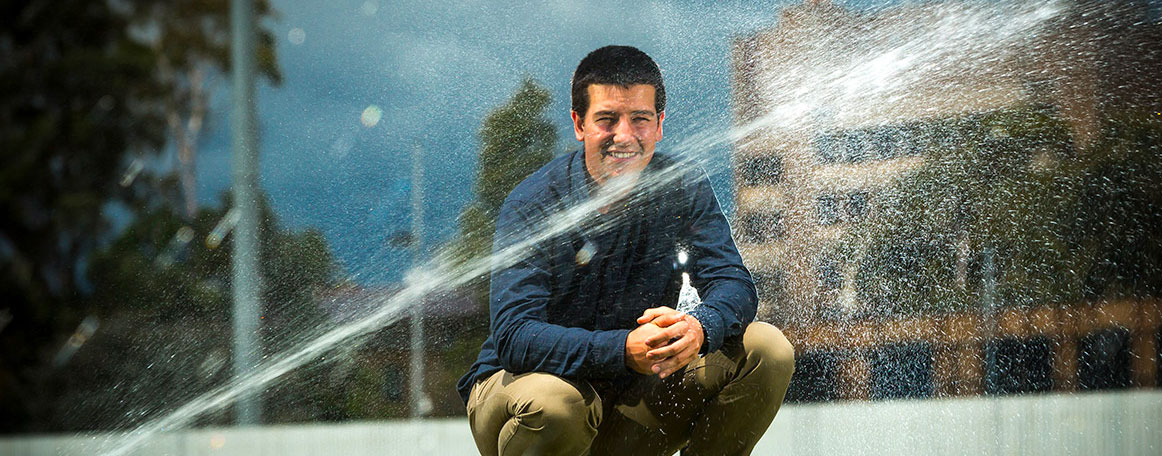Fluid thinking makes a splash
Sam Skinner has a post-doctoral plan to improve global water recycling in the wastewater industry.

He credits the success of his journey towards this goal to scholarships he has received throughout his studies at the University of Melbourne.
At 27, Sam has almost completed a PhD that deals with increasing the efficiency of sludge treatment and filtration, and the important flow-on for water recycling – crucial concerns for any growing metropolis. His work involves mathematical modelling of wastewater sludge filtration to measure organic content and improve the treatment process, with an emphasis on water recycling.
It’s hard giving sludge a pretty face, yet this rich resource is central to Sam’s research – and to Victoria’s sustainability. Publishing his first paper on this work (2015) was a huge thrill – but even more so when the paper (with 10 authors) started to appear in citations. Experts are paying attention.
Sam says he would not be where he is without the financial support he has received, beginning with a scholarship when he moved to Melbourne from Mildura in 2008 to do a Bachelor of Science at the University.
Looking back, he can see how growing up on the Murray River began his interest in water – not only in terms of the resource-pressures Victoria experiences with an extreme climate, but also on the international stage of creating technologies for developing countries and increasing living standards in an environmentally sustainable manner.
Sam continued his studies at the University with a Master of Engineering (Chemical Engineering) in 2012 but initially found it a struggle trying to juggle study and employment.
“It was just unsustainable,” he says. “Travelling to and from Melbourne and trying to focus on both things was too much, but I had little choice.”
In the middle of that year, he won a Master of Engineering Merit Scholarship, and other financial support. “I could then concentrate on the study and not work for an income,” he says.
“At masters level, I was finding it very difficult to put in the work and keep up with the workload. Being able to just focus on the study was huge – otherwise, I don’t think I would have been able to keep going. Once I had that financial difficulty taken away, it made it much easier to treat my study like a full-time job, which it is.”
I wouldn’t be doing a PhD now without the scholarships or initial support. Such support allows me to work in an area that has benefits for the community in terms of environmental sustainability and wastewater recycling.
Now part of the University’s Particulate Fluids Processing Centre since beginning his PhD in 2014, Sam has been awarded further scholarships as well as winning the Global Environmental Sustainability Award from Balwyn Rotary Club last year.